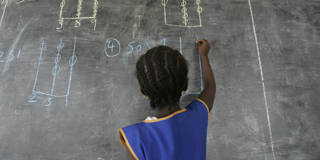Education is the most effective tool for dismantling the cycles of intergenerational poverty that have impeded Africa's economic development. To ensure that children acquire basic numeracy and literacy skills, educators and policymakers must provide all learners with an equitable, high-quality learning environment – and food.
FREETOWN – Education is on the cusp of a global shift. September’s Transforming Education Summit at the United Nations in New York brought together representatives from more than 130 countries to discuss how to respond to the worldwide learning crisis caused by the COVID-19 pandemic. Unless that response truly is transformative, the UN’s Sustainable Development Goal for Education (SDG4), which aims to “ensure inclusive and equitable quality education and promote lifelong learning opportunities for all” by 2030, will remain out of reach.

FREETOWN – Education is on the cusp of a global shift. September’s Transforming Education Summit at the United Nations in New York brought together representatives from more than 130 countries to discuss how to respond to the worldwide learning crisis caused by the COVID-19 pandemic. Unless that response truly is transformative, the UN’s Sustainable Development Goal for Education (SDG4), which aims to “ensure inclusive and equitable quality education and promote lifelong learning opportunities for all” by 2030, will remain out of reach.